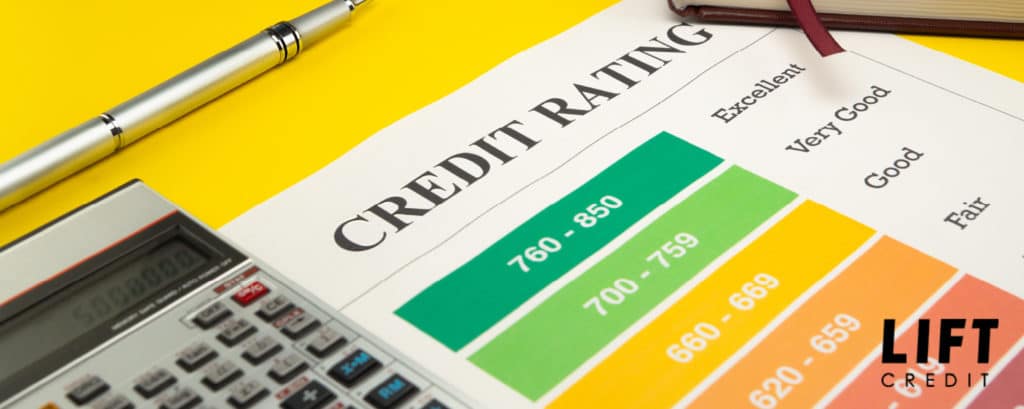Your credit score is a three-digit number that has a big impact on your life. A good credit score is usually needed to get numerous types of loans, a mortgage, a car loan, and sometimes a place to live. A good score is one ticket to reaching your financial and personal goals, and a poor score—below 670—can really get in the way. Bad credit doesn’t mean you can’t get a personal loan, but good credit can sure go a long way.
The factors and formulations that go into calculating a credit score can be complex. What exactly lowers your credit score? Does checking your credit score really lower it? This guide looks at what hurts your credit score so you can have a better idea of how to make smart choices that benefit your credit.
1. Missing or Late Payments
Payment history is the most important factor in calculating your credit score. Just one missed payment on a credit card or loan can really ding your score, even if you have an otherwise great history. Payment history makes up 35 percent of your FICO score, which is the credit score used by most lenders. A payment that is more than 30 days late can drop you points and stay on your record for up to seven years. Lenders want to know that you will pay them back on time, and a track record of late or missing payments doesn’t look good.
2. High Credit Utilization
Credit utilization is a measurement of how much of your available credit you are using. It is calculated by dividing the total credit you are using by the total of all your credit limits. For example, if your balance on a credit card is $300 and your credit limit is $1,000, then your credit utilization for that card is 30%. Using any more of your available credit than 30% can hurt your credit score and chances of getting a loan. When you have a high credit utilization ratio, that means you have a higher risk of defaulting on your loans. Credit utilization makes up 30% of your FICO score
3. Short or No Credit History
The length of your credit history, including the age of your oldest credit account, makes a difference in your credit score. If you’ve never had a credit card or taken out a loan before, you may have a lower score. Typically, the longer you’ve had a credit history, the higher your score will be. Your credit history makes up 15% of your FICO score and is calculated using the age of your newest credit account, your oldest account, and the average age of all accounts. Lenders prefer a longer credit history because it provides evidence of how you’ve handled debt in the past—having no or a short credit history makes you riskier.
4. Using Only One Type of Credit
To maximize your credit score, a diverse mix of credit cards, installment loans, and mortgage/auto loans are the way to go. Having only one source of credit will hurt your credit score. A variety of accounts shows that you have experience managing a wide range of debt and can handle more. Your credit mix makes up 10% of your FICO score.
5. Recent Credit Applications
Does checking your credit score lower it? Not if you are looking up your own score. But if a lender checks your score as part of a credit card or loan application—referred to as a hard inquiry—your credit score will be hurt, at least temporarily. New credit accounts and hard inquiries represent 10% of your FICO score. If you’ve had recent hard inquiries or have opened a new account, that indicates an increased risk to lenders and will lower your credit score.
6. Bankruptcy and Foreclosure
Declaring bankruptcy has the biggest impact on your credit score. It will stay on your report for up to ten years and may lower your score from 130 to 240 points. A foreclosure will drop you up to 160 points and stay on your report for seven years.
7. Not Having a Credit Card
To qualify for a FICO score in the first place, you need at least one loan or credit card that is six months old.
8. Debt Settlement and Debt Consolidation
How you manage your existing debt will impact your credit score. If you settle a debt with a creditor for less than what you owed originally, your credit score can jump down by as much as 100 or more points. If you choose to move your credit card debt onto a consolidation loan, you might see a slight dip in your score, but only from the effects of a hard inquiry that is part of the application process.
9. Being an Authorized User on Someone Else’s Account
Being added as an authorized user on someone else’s credit card account can be a good thing or a bad thing for your credit, depending on the payment history of that account. If the cardholder consistently makes payments and keeps the balance low, you can get a nice boost. But if the balance is high or payments are missed or late, your own credit—along with the card holder’s credit—will suffer.
10. Credit Report Errors
Credit reports aren’t infallible. Anything from minor mistakes to identity theft can create errors that damage your ability to qualify for loans. Check your credit reports regularly and dispute any errors. Make sure you have the documentation to prove that there has been a mistake.









